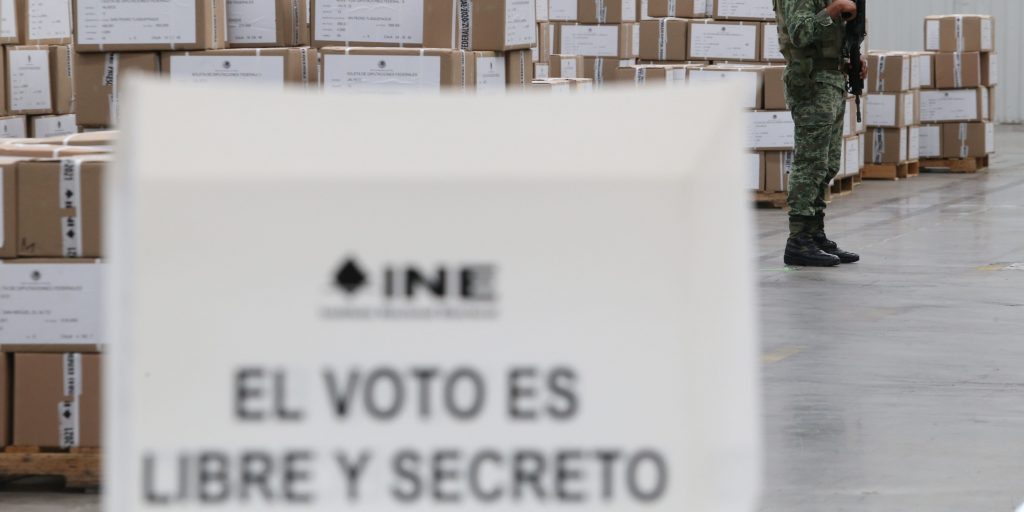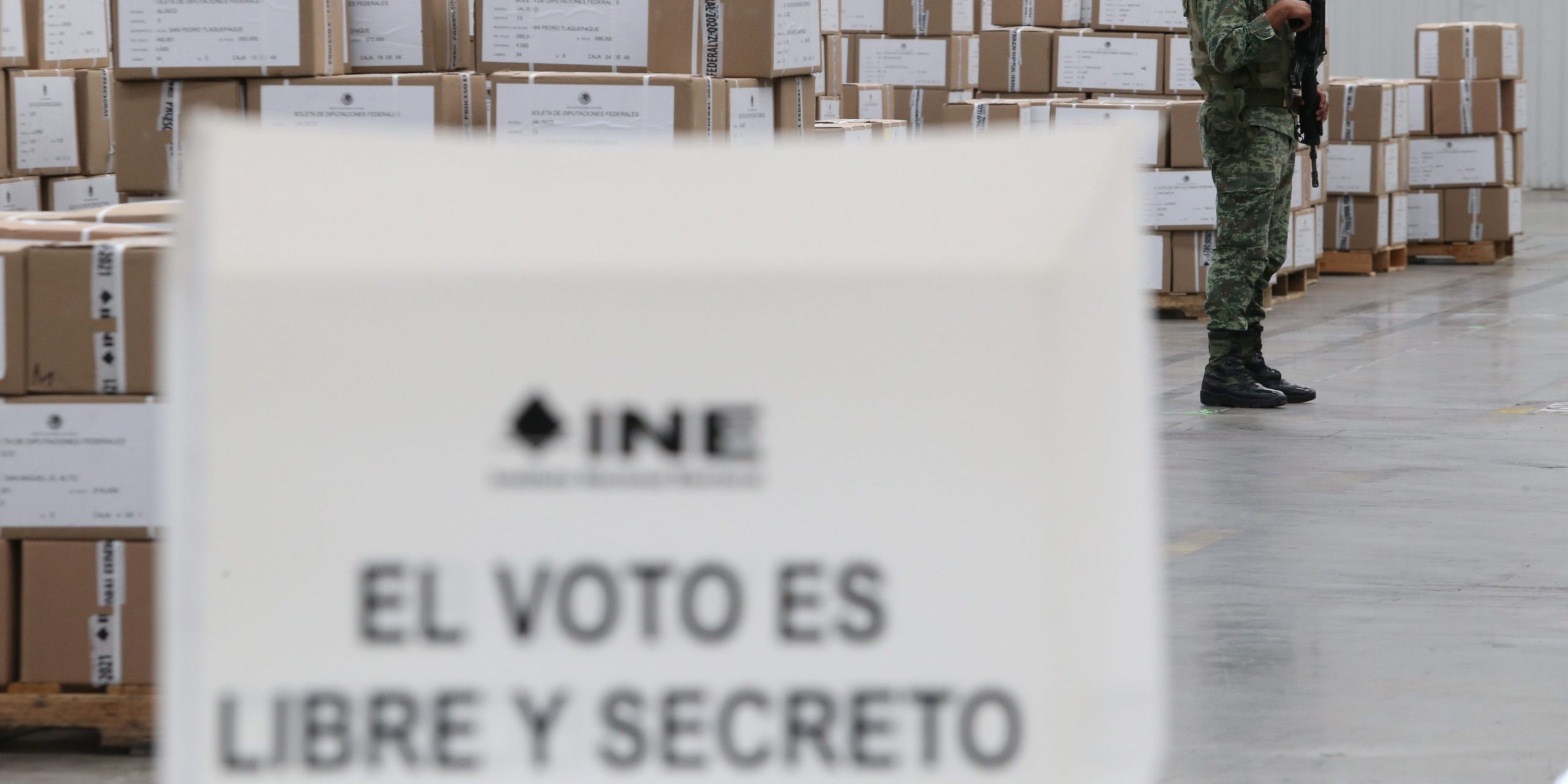
REUTERS/Edgard Garrido
- Mexico is gearing up for the largest election in its history, with over 21,000 offices at stake.
- One of the candidates is on the DEA's most-wanted list, but he has denied the allegations, calling them "part of a dirty war" against him.
- Mexico's political and criminal worlds have long overlapped, and violence tends to increase around elections.
- See more stories on Insider's business page.
MEXICO – Mexico's midterm elections on June 6 will be the largest in the country's history, with voters choosing candidates for more than 21,000 offices.
One of those candidates is already well known by some in the US: Rogelio Portillo Jaramillo, 41, who the DEA describes as an "armed and dangerous" fugitive.
Portillo Jaramillo is running for mayor in the city of Huetamo in the state of Michoacán on the ticket of the leftist National Regeneration Movement, or Morena, the party led by Mexican President Andrés Manuel López Obrador.
Michoacán has become one of Mexico's most violent states and a battleground for the Cartel Jalisco Nueva Generation, according to recent reports. Huetamo is in a particularly violent part of the state known as the Tierra Caliente.
The charges against Portillo Jaramillo stem from his time in Houston in the early 2000s. He is accused of conspiring to distribute cocaine inside the US, part of a cocaine-distribution ring operated by him and several family members, according to the indictment.
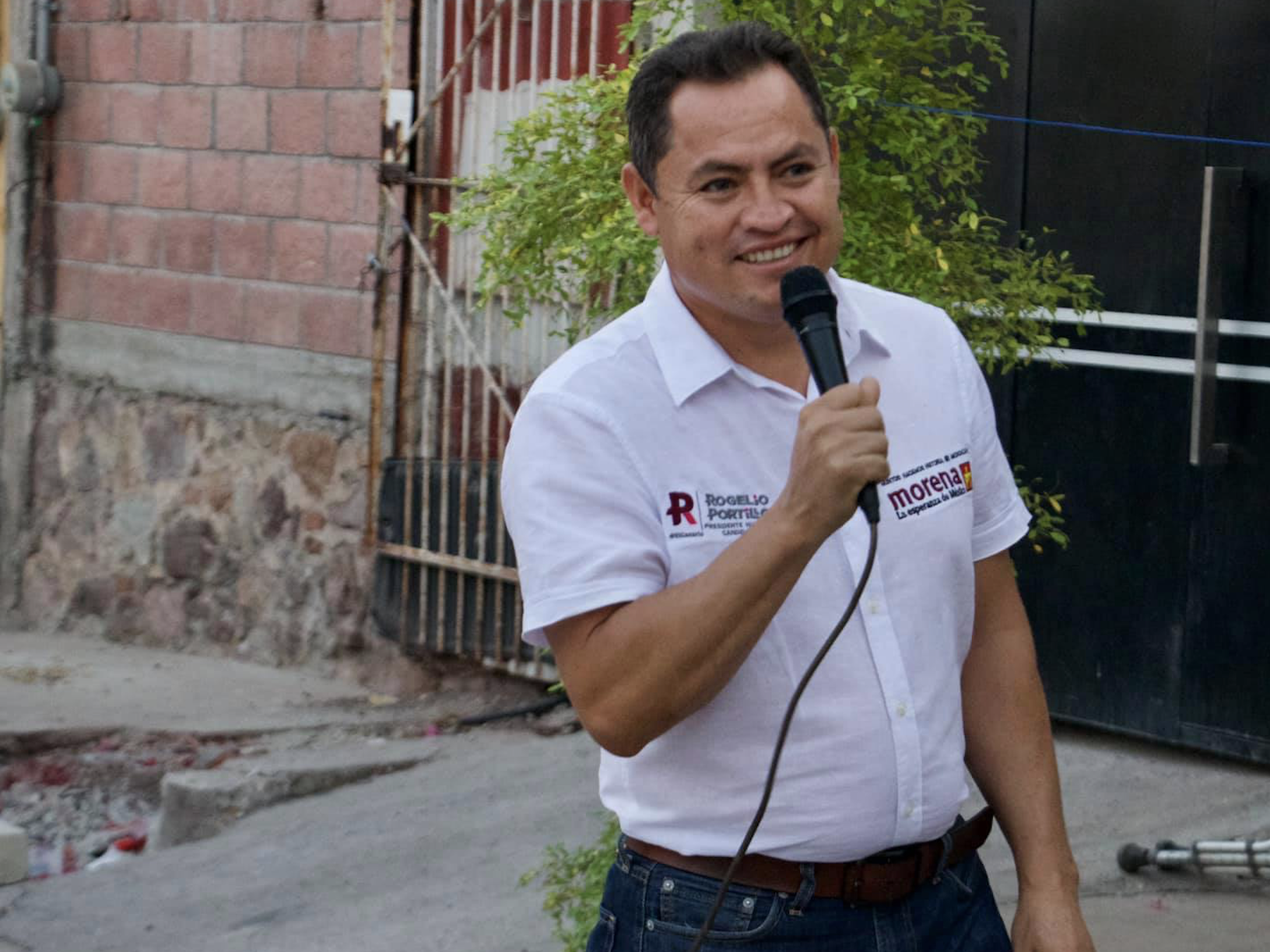
Rogelio Portillo Jaramillo/Facebook
Portillo Jaramillo's father, Edilberto Portillo, was arrested in 2005 along with another family member named Marcelino Portillo and a group of alleged associates after an investigation into a cocaine distribution ring operating at a Houston nightclub owned by Edilberto.
Marcelino Portillo Mendoza, Portillo Jaramillo's uncle, is also on the DEA fugitives list, facing the same charges.
Portillo Jaramillo has denied allegations against him, saying they are "part of a dirty war against my political career."
"I would also like to know why is the DEA looking for me," he said during a recent interview. "They say the DEA is looking for me for links with Cartel Jalisco Nueva Generación, which is false information and is very irresponsible."
Portillo Jaramillo was added to the DEA's fugitive list in 2009, the agency told Insider in a written statement.
Portillo Jaramillo said he contacted the DEA to say he was one of the persons on the list. "They said they couldn't provide any information," he said.
The DEA wouldn't confirm nor deny that Portillo Jaramillo had contacted the agency, nor would it comment on whether it told him it couldn't offer any information.
Israel Patrón, the head of public security in Michoacán, has said his office is "corroborating DEA's allegations" but that Portillo "doesn't have any open investigations in Mexico."
Morena's spokesperson in Michoacan said Portillo Jaramillo meets the party's requirements to run for public office, which include not having any open investigations by Mexican authorities.
Mexican electoral laws don't take into consideration open investigations outside the country, however.
'Diverse criminal portfolios'
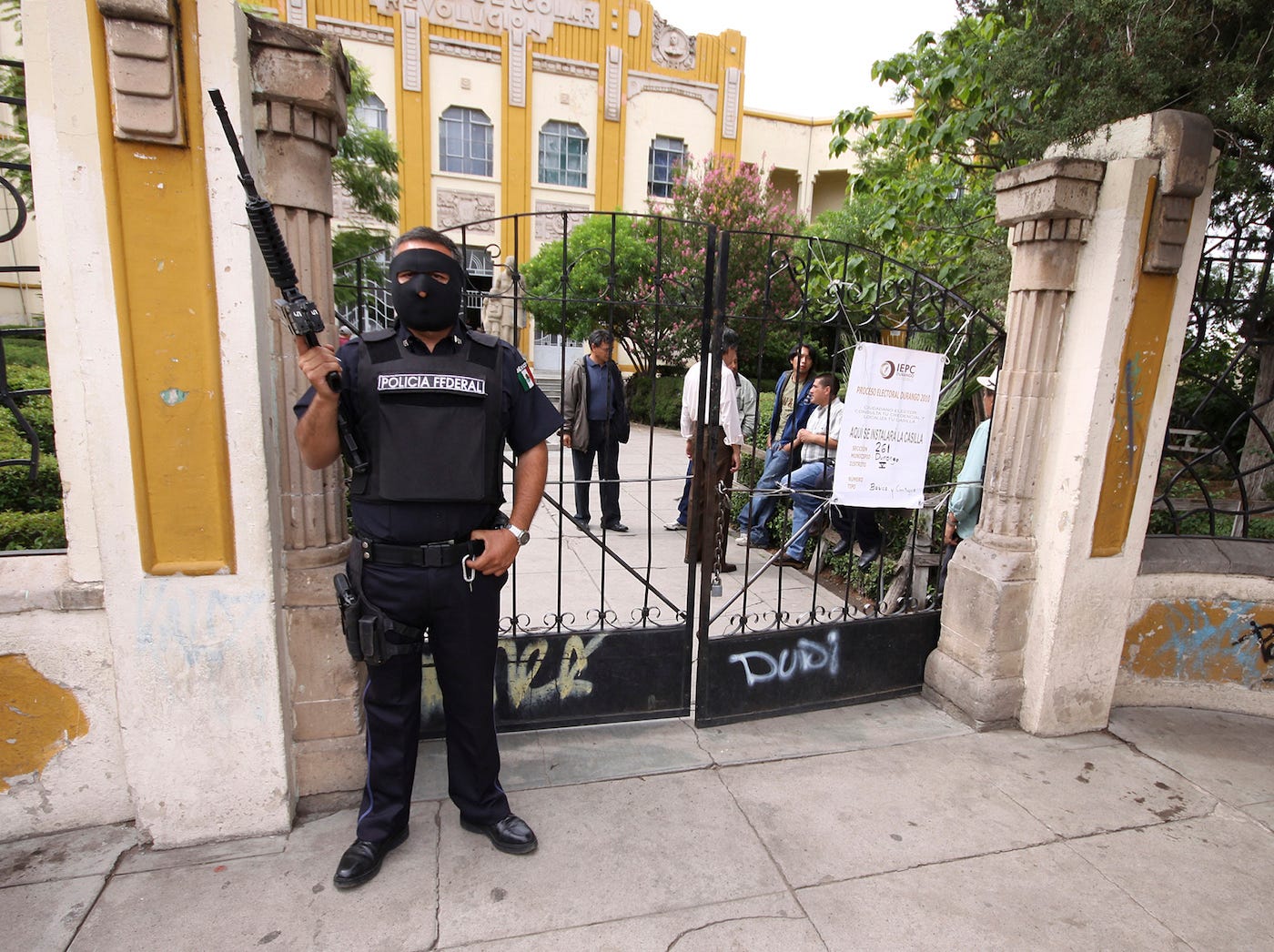
REUTERS/Jorge Valenzuela
Fifteen of Mexico's 31 states are holding elections next month, and most of them are affected by cartel-related violence, according to Semaforo Delictivo, a citizen-led initiative that compiles data on crime in Mexico and uses red, yellow, and green lights to rate severity. (Semaforo means "traffic light" in Spanish.)
Eleven of those 15 states received a red-light rating from the group for the high number of homicides registered between January and March 2021.
Criminal involvement is a longstanding feature of Mexican politics. Throughout the country's recent history, elected officials have been caught or accused of making agreements with criminal groups, allowing them to operate in exchange for payoffs or other benefits.
Mexico's political system has opened up over the past two decades, presenting more opportunities for candidates and cartels alike.
Criminal organizations, such as the Sinaloa Cartel and the Cartel Jalisco Nueva Generacion, are getting involved in Mexican politics not only by financing candidates but also by actually trying to put some of their associates in public positions.
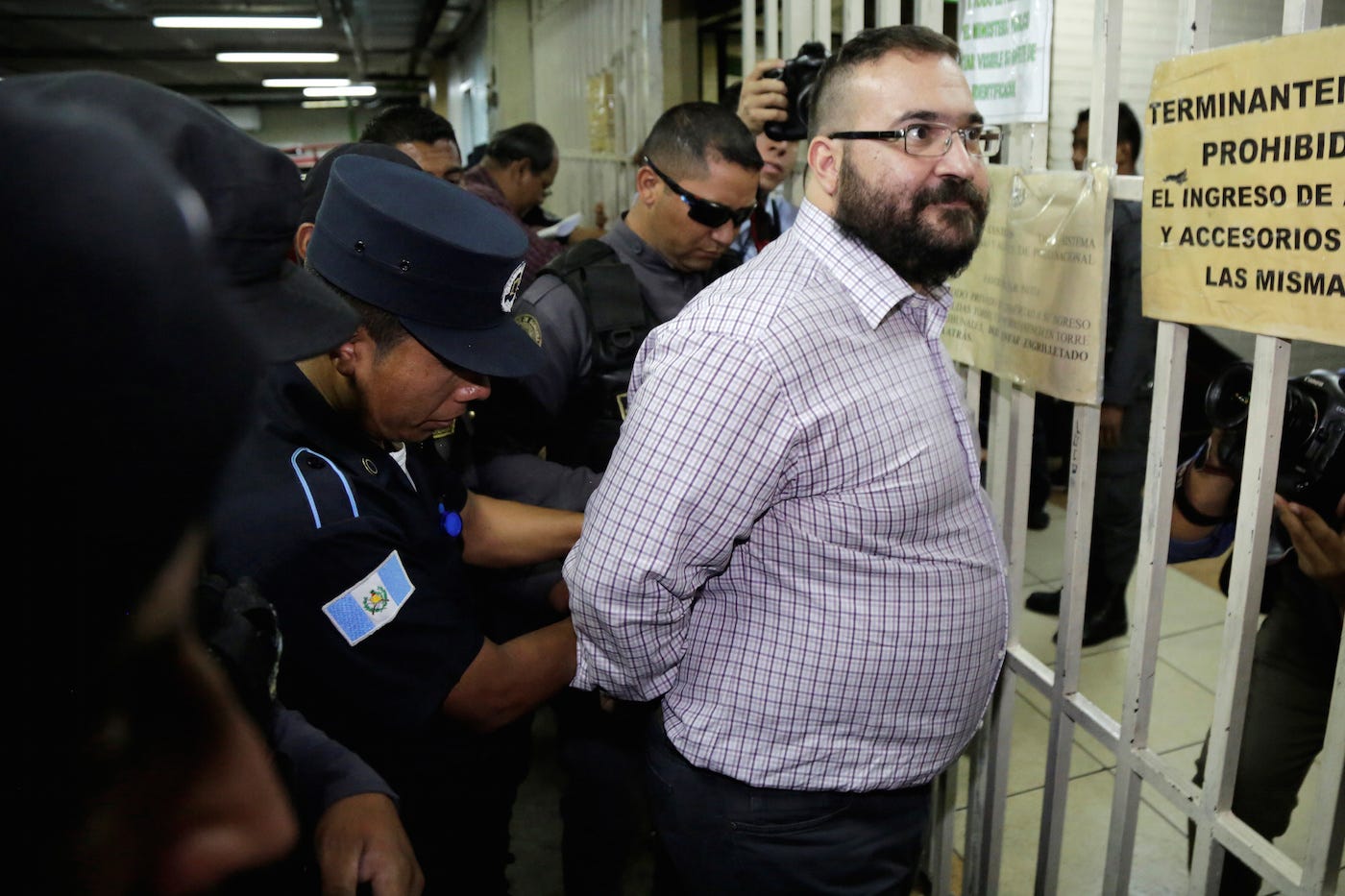
REUTERS/Luis Echeverria
"There is a growing interest by the criminal organizations to occupy public service positions to [gain] access to funding. This is a new add-on to organizations' diverse criminal portfolio," Cecilia Farfan-Mendez, head of security research programs at the Center for US-Mexican Studies at the University of California at San Diego, told Insider.
Most candidates for the June 6 vote are now actively campaigning. Violence will only intensify as election day nears and criminal groups adjust to what they see as uncertainty over which politicians they will be dealing with, Farfan-Mendez said.
"Uncertainty generates violence. Criminal organizations are lost in terms of who will they have to negotiate or bribe, so old agreements with politicians begin to break and violence starts growing," she said. "Wherever there is an agreement between criminals and politicians, you won't see any violence."
Portillo Jaramillo is not the only aspiring office-holder in this round of elections who has been accused of criminal ties.
Evelyn Salgado Pineda, running for governor of the state of Guerrero with Morena, has been accused of links to the Beltran-Leyva Cartel, a once-powerful group connected to the Sinaloa Cartel.
Salgado Pineda's father-in-law, Joaquin Alonso Piedra, was arrested in 2016 and accused of being a financial operator for the wife of Hector Beltran Leyva, a founder and leader of the cartel who died in 2018, according to an investigation by Mexican news outlet Eme Equis.
Dit artikel is oorspronkelijk verschenen op z24.nl
